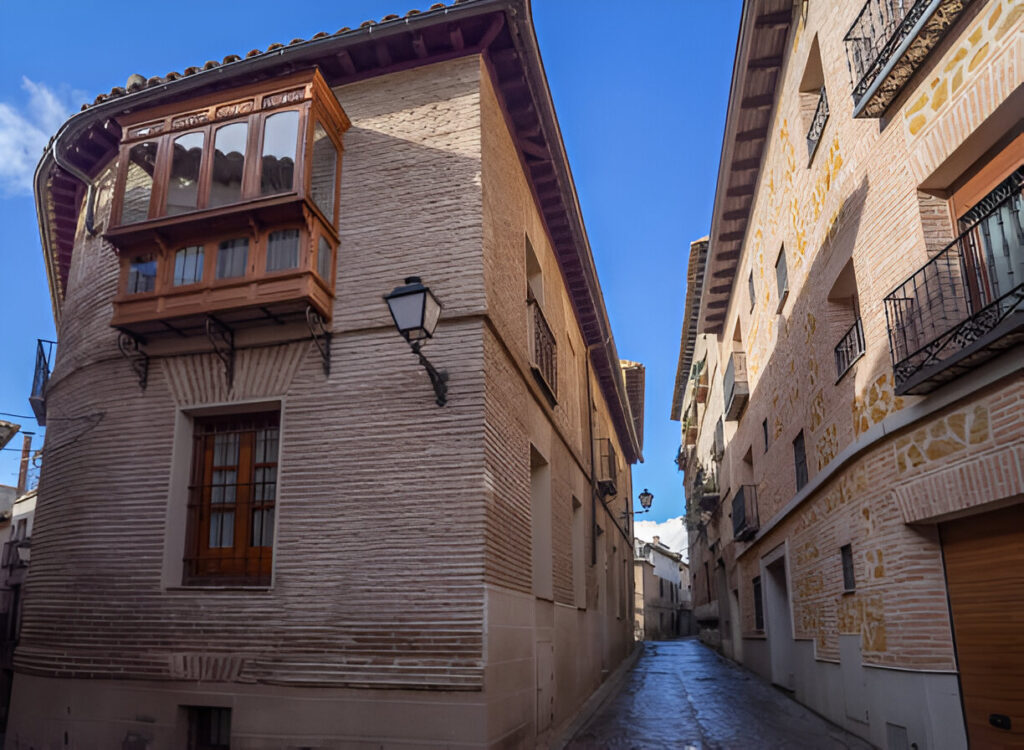When considering the best places to retire in Spain, there are plenty of appealing options for those looking to retire to Spain from the USA. Spain offers a mix of vibrant cities, picturesque coastal towns, and charming countryside villages.
Whether you’re seeking the best cities to live in or inexpensive places to live in Spain, you’ll find that the country has something for everyone. Retiring in Spain provides a perfect blend of rich culture, favorable climate, and affordable living, making it a top choice for retirees.
Your Guide to the Best Places to Retire in Spain
Spain has long been a favored destination for retirees worldwide, offering a mix of vibrant cities, beautiful coastal towns, and peaceful countryside villages. This guide provides an in-depth look at Spain’s best places to retire, catering to various preferences and budgets.
Whether you are drawn to the cultural richness of urban centers, the tranquility of small towns, or the allure of seaside living, Spain has something for everyone.
Why Retire in Spain?
Spain is a popular destination for retirees worldwide due to its sunny climate, rich culture, affordable living, and high-quality healthcare. The country offers a variety of living environments, from bustling cities to serene coastal towns and quaint countryside villages, making it an ideal choice for different lifestyles and preferences. Let’s delve into why Spain is such an attractive retirement option.
The Appeal of Spain for Retirees
Spain’s appeal to retirees is multifaceted, encompassing climate, culture, cuisine, and lifestyle.

Climate and Geography
- Mild Climate: Spain enjoys a Mediterranean climate with mild winters and warm summers, especially in coastal areas like Costa del Sol and Costa Blanca. This favorable weather allows for outdoor activities year-round.
- Diverse Landscapes: From the Pyrenees mountains to the Mediterranean and Atlantic beaches, Spain offers outdoor enthusiasts a wide range of natural beauty.
Cultural Richness
- Historical Sites: Spain has numerous UNESCO World Heritage sites, ancient ruins, and historical landmarks. Cities like Granada, Seville, and Toledo offer rich histories and stunning architecture.
- Vibrant Festivals: Spain is famous for its festivals, such as La Tomatina, Running of the Bulls, and numerous local fiestas celebrating cultural traditions, food, and music.
Lifestyle
- Relaxed Pace of Life: The Spanish lifestyle emphasizes leisure and relaxation. The siesta tradition, long lunches, and evening socializing contribute to a less stressful lifestyle.
- Community and Social Life: Spaniards are known for their friendliness and strong sense of community, making it easier for retirees to integrate and build social connections.
Cuisine
Mediterranean Diet: The Spanish diet, rich in fruits, vegetables, olive oil, and seafood, is considered one of the healthiest in the world. Retirees can enjoy delicious and nutritious meals.
Benefits of Retiring in Spain from the USA
Retiring in Spain offers unique advantages for Americans that enhance the retirement experience.

Cost of Living
- Affordable Housing: Compared to many parts of the USA, housing in Spain is significantly cheaper. Whether renting or buying, retirees can find inexpensive options in various regions.
- Lower Daily Expenses: Groceries, dining out, and utilities are generally less expensive in Spain, allowing retirees to maintain a comfortable lifestyle on a lower budget.
Utilities and Healthcare
- Lower Utility Bills: Electricity, water, and internet services are generally cheaper in Spain.
- Affordable Healthcare: Spain’s healthcare system is high-quality and affordable. Public healthcare is accessible to residents, and private insurance is available for those who prefer it.
By understanding these aspects, retirees can make informed decisions about moving to Spain and enjoying their retirement years in one of Europe’s most attractive and welcoming countries.
Top Best Cities in Spain to Live
Spain offers diverse cities, each with unique qualities that appeal to various lifestyles and preferences. Here’s an in-depth exploration of some of the best cities in Spain to live:

Barcelona: Vibrant Culture and Stunning Architecture
Barcelona stands out as a city renowned for its artistic heritage, lively atmosphere, and distinctive architecture influenced by Antoni Gaudí and other modernist architects. Here’s why Barcelona is an attractive place to live:
- Cultural Hub: Barcelona is a cultural hotspot with a rich artistic scene. It includes world-class museums like the Museu Picasso and the Museu Nacional d’Art de Catalunya (MNAC). The city hosts numerous cultural events, such as the Primavera Sound festival and Sant Jordi Day, which celebrate Catalan culture and literature.
- Architectural Marvels: Gaudí’s masterpieces, such as the Sagrada Família and Park Güell, define Barcelona’s unique skyline and attract visitors from around the globe. The Gothic Quarter (Barri Gòtic), with its labyrinthine streets, medieval buildings, and charming squares, adds to the city’s architectural charm.
- Beaches: Barcelona offers several urban beaches, including Barceloneta Beach, where residents can relax, sunbathe, and enjoy a variety of water sports right in the heart of the city. Combining urban life with beach access is a significant draw for many residents.
- Diverse Neighborhoods: Each neighborhood in Barcelona has its personality, from the artistic vibe of Gràcia to the trendy and historic El Born. Whether you prefer vibrant nightlife, cultural immersion, or peaceful residential areas, Barcelona has a neighborhood to suit every taste.
- Quality of Life: Barcelona provides excellent healthcare facilities with public and private options. The city’s efficient public transport system, including buses and a comprehensive metro network, makes commuting easy. Its lively nightlife, renowned restaurants, and thriving cultural scene contribute to a high quality of life for locals and expatriates.
Madrid: The Heart of Spain
As Spain’s capital city, Madrid offers a dynamic mix of history, culture, business opportunities, and green spaces. Here’s what makes Madrid an ideal city to live in:
- Cultural and Historical Wealth: Madrid is home to some of the world’s most prestigious art museums, including the Prado Museum, Museo Nacional Centro de Arte Reina Sofía, and Thyssen-Bornemisza Museum. These museums house extensive collections spanning centuries of art history.
- Business and Economy: Madrid is a significant financial and economic hub in Europe, offering diverse job opportunities across various industries. The city’s robust economy and international business environment attract professionals and entrepreneurs worldwide.
- Parks and Green Spaces: Madrid boasts numerous parks and gardens, with Retiro Park (Parque del Retiro) being the most famous. These green spaces provide residents with opportunities for leisure activities, picnics, and outdoor sports, offering a peaceful retreat from urban life.
- Gastronomy: Madrid’s culinary scene is vibrant and diverse, ranging from traditional tapas bars serving local delicacies to Michelin-starred restaurants offering innovative cuisine. Food enthusiasts can explore various flavors and dining experiences throughout the city.
- Transportation: Madrid features an extensive and efficient public transportation system, including a metro network, buses, and suburban trains. This connectivity makes it easy for residents to navigate the city and access its various neighborhoods and amenities.
Valencia: Coastal Charm and Modern Living
Valencia, located on Spain’s eastern coast, combines a rich historical heritage with contemporary amenities and beautiful Mediterranean beaches. Here’s why Valencia is a desirable city for residents:
- Coastal Living: Valencia offers residents access to stunning beaches, including Malvarrosa and El Cabanyal, where they can enjoy sunbathing, swimming, and various water sports year-round. The city’s seaside promenades are perfect for strolls and ocean views.
- Cultural Heritage: Valencia’s historical significance is evident in its architecture, such as the City of Arts and Sciences (Ciudad de las Artes y las Ciencias), designed by renowned architect Santiago Calatrava. This futuristic complex houses museums, an opera house, and an aquarium reflecting Valencia’s commitment to innovation and culture.
- Festivals: Valencia is famous for its vibrant festivals, most notably Las Fallas, a spectacular celebration featuring fireworks, parades, and the burning of elaborate sculptures (fallas). These events attract visitors worldwide and showcase Valencia’s festive spirit and cultural traditions.
- Affordable Living: Compared to Barcelona and Madrid, Valencia offers a cheaper cost of living while still providing access to excellent healthcare, education, and recreational facilities. Residents can enjoy a comfortable lifestyle without the higher expenses associated with larger cities.
- Climate: Valencia enjoys a Mediterranean climate with mild winters and warm summers, encouraging an outdoor lifestyle throughout the year. The city’s pleasant weather and sunny days make it an ideal destination for those seeking a healthy and active lifestyle.
These cities exemplify Spain’s diversity and appeal, offering residents a blend of historical richness, cultural vibrancy, modern amenities, and natural beauty. Whether you prefer the artistic charm of Barcelona, the dynamic energy of Madrid, or the coastal tranquility of Valencia, each city provides unique opportunities and experiences for residents to enjoy.
Inexpensive Places to Live in Spain
Spain offers several cities and towns where the cost of living is more affordable, making them attractive options for retirees, expatriates, and budget-conscious individuals seeking a high quality of life without breaking the bank. Here’s a detailed look at some of the inexpensive places to live in Spain:
Alicante: Affordable Coastal Living
Alicante, located on the southeastern coast of Spain, is known for its affordability, pleasant climate, and beautiful Mediterranean beaches. Here’s why Alicante is a popular choice for those seeking affordable coastal living:
- Cost of Living: Alicante offers a lower cost of living than major cities like Madrid and Barcelona. Housing, groceries, dining out, and entertainment are generally more affordable, allowing residents to live comfortably on a budget.
- Climate: Alicante enjoys a Mediterranean climate with mild winters and hot summers, making it ideal for outdoor activities year-round. The city’s beaches, including Playa del Postiguet and Playa de San Juan, attract residents and tourists with golden sands and crystal-clear waters.
- Cultural Attractions: Alicante boasts a rich cultural heritage, with historical sites such as the Castle of Santa Bárbara offering panoramic views of the city and coastline. The Old Town (Casco Antiguo) features narrow streets, colorful houses, and traditional Spanish architecture.
- Transportation: Alicante has a well-connected public transportation system, including buses and trams, making navigating the city and surrounding areas easy. The Alicante-Elche Airport provides convenient access to international travel destinations.
Granada: History and Affordable Lifestyle
Granada, nestled in southern Spain’s foothills of the Sierra Nevada mountains, is renowned for its historical significance, stunning architecture, and lower cost of living. Here’s why Granada is an appealing destination for residents seeking a blend of history and affordability:
- Historical Richness: Granada is famous for the Alhambra, a UNESCO World Heritage site and one of Spain’s most iconic landmarks. The Alhambra’s palaces, gardens, and fortifications reflect centuries of Moorish and Spanish architecture.
- Affordable Living: Granada offers a more affordable living cost than larger cities like Madrid and Barcelona. Renting apartments or buying property is generally cheaper, making it accessible for retirees and expatriates looking to stretch their budgets.
- Cultural Scene: Granada’s cultural scene is vibrant, with traditional flamenco performances, local festivals, and a thriving arts community. The city’s historic neighborhoods, such as the Albaicín, provide a glimpse into its Moorish past with narrow alleys and stunning views of the Alhambra.
- Natural Beauty: Besides its historical attractions, Granada is surrounded by natural beauty. The Sierra Nevada National Park offers hiking, skiing, and outdoor activities, appealing to nature enthusiasts and adventure seekers.
Malaga: Budget-Friendly and Beautiful
Malaga, situated on the Costa del Sol in southern Spain, combines affordability with coastal beauty, making it an attractive destination for residents seeking a budget-friendly lifestyle by the sea. Here’s what makes Malaga a desirable place to live:
- Cost of Living: Malaga offers a lower cost of living than larger cities like Barcelona and Madrid. Housing prices are more affordable, and daily expenses such as groceries and dining out are budget-friendly, allowing residents to enjoy a high quality of life without overspending.
- Coastal Charm: Malaga boasts beautiful Mediterranean beaches, including Playa de la Malagueta and Playa de la Misericordia, where residents can relax, swim, and enjoy water sports. The city’s seaside promenade (Paseo Marítimo) is perfect for leisurely walks and enjoying ocean views.
- Cultural Attractions: Malaga has a rich cultural heritage, with landmarks such as the Alcazaba Fortress and Gibralfaro Castle offering insights into its Moorish past. The Picasso Museum, dedicated to the renowned artist Pablo Picasso, showcases his life and work.
- Climate: Malaga enjoys a Mediterranean climate with mild winters and hot summers, making it an ideal destination for outdoor living and activities throughout the year. The city’s sunny weather and relaxed atmosphere contribute to its appeal among residents.
These cities exemplify Spain’s affordability and diversity, offering residents a range of living environments from coastal beauty to historical richness, all at a more manageable cost than larger urban centers. Whether you prefer the seaside charm of Alicante, the historical allure of Granada, or the coastal beauty of Malaga, each city provides unique opportunities and a high quality of life for residents on a budget.
Coastal Retirement Destinations In Spain
Spain offers several coastal retirement destinations that combine sun, sea, and a relaxed lifestyle. Here’s a detailed look at some of the most appealing coastal areas for retirees:

Costa del Sol: Sun and Sea
Costa del Sol, located in southern Spain, is renowned for its sunny climate, beautiful beaches, and vibrant expatriate community. Here’s why Costa del Sol is a top choice for coastal retirement:
- Sunshine: Costa del Sol enjoys over 300 days of sunshine annually, making it ideal for outdoor activities and relaxation year-round.
- Beautiful Beaches: The region boasts stunning beaches such as Marbella, Estepona, and Torremolinos, where retirees can enjoy swimming, sunbathing, and water sports.
- Golfing Paradise: Costa del Sol is known as the “Costa del Golf” due to its numerous golf courses set against breathtaking coastal backdrops.
- Cultural Attractions: Nearby cities like Malaga offer cultural attractions such as museums, historical sites, and festivals that add to the region’s charm.
Costa Blanca: Beautiful Beaches and Low Costs
Costa Blanca, stretching along Spain’s eastern coast, offers pristine beaches, affordable living, and a relaxed Mediterranean lifestyle. Here’s why Costa Blanca is a popular choice for retirees:
- Scenic Beaches: Costa Blanca features beautiful beaches like Alicante, Benidorm, and Calpe, known for their crystal-clear waters and sandy shores.
- Affordable Living: The cost of living in Costa Blanca is lower compared to major cities, making it affordable for retirees on a budget.
- Outdoor Activities: Retirees can enjoy hiking, golfing, water sports, and exploring picturesque coastal towns and villages.
- Healthcare and Amenities: The region offers excellent healthcare facilities, modern amenities, and a range of leisure options, ensuring a comfortable retirement lifestyle.
Canary Islands: Exotic and Affordable
The Canary Islands, located off the northwest coast of Africa, offer a unique blend of exotic landscapes, year-round warmth, and affordability. Here’s why the Canary Islands are a dream destination for retirees:
- Year-Round Sunshine: The Canary Islands boast a subtropical climate with warm temperatures throughout the year, making it an ideal escape from colder climates.
- Natural Beauty: Each island offers distinct landscapes, from volcanic terrain and lush forests to sandy beaches and dramatic cliffs, providing retirees with endless opportunities for exploration.
- Affordable Living: The cost of living in the Canary Islands is generally lower than in mainland Spain, with affordable housing options and reasonable daily expenses.
- Quality of Life: The islands provide modern infrastructure, excellent healthcare facilities, and a relaxed lifestyle that attracts retirees seeking peace and tranquility.
These coastal retirement destinations in Spain offer retirees a mix of natural beauty, cultural richness, and affordable living, making them ideal places to enjoy a fulfilling retirement by the sea. Whether you prefer the vibrant Costa del Sol, the serene Costa Blanca, or the exotic Canary Islands, each destination promises a relaxed and enjoyable lifestyle in a picturesque coastal setting.
Practical Considerations for Retiring in Spain
Retiring in Spain involves several practical considerations for a smooth transition and enjoyable retirement. Here’s a detailed exploration of each aspect:
Visa Requirements for Americans
Before retiring in Spain, Americans must navigate the visa requirements specific to non-EU citizens:
- Non-Lucrative Residence Visa: Americans typically apply for a non-lucrative residence visa, which allows them to reside in Spain without engaging in work or business activities. This visa requires proof of sufficient financial means to support oneself and any dependents without relying on Spanish public funds.
- Application Process: The application process involves gathering documentation such as proof of stable income, medical insurance coverage valid in Spain, a clean criminal record certificate, and a valid passport. Applicants must submit these documents to the Spanish consulate or a designated visa application center in their home country.
- Residency Card: Upon arrival in Spain, retirees must obtain a residency card (Tarjeta de residencia) from the local Foreigner’s Office (Oficina de Extranjeros) within the first month. This card confirms their legal residence status in Spain and is essential for accessing healthcare, opening a bank account, and other administrative tasks.
Healthcare in Spain
Access to healthcare is a critical consideration for retirees moving to Spain:
- Public Healthcare System: Spain’s public healthcare system (Sistema Nacional de Salud) provides universal coverage to residents and registered expatriates. Funded through taxes, it offers free or low-cost medical services, including hospital care, specialist consultations, and prescriptions. To access public healthcare, retirees must register with the local healthcare authority and obtain a health card (tarjeta sanitaria).
- Private Healthcare Options: Many retirees opt for private health insurance to supplement public healthcare or gain access to faster appointments and additional services. Private insurance policies vary in coverage and cost, allowing retirees to choose plans that best fit their healthcare needs and preferences.
- European Health Insurance Card (EHIC) and S1 Form: Retirees from EU countries or those eligible for the EHIC can access Spanish healthcare under reciprocal agreements. Retirees receiving a UK State Pension can use an S1 form to access healthcare in Spain, covering necessary medical treatments during their stay.
Finding the Right Accommodation
Choosing suitable accommodation is essential for retirees to feel comfortable and settled in Spain:
- Rental Market: Many retirees initially opt to rent property in Spain, especially in cities like Madrid and Barcelona, where buying property may be more expensive. Rental agreements (contrato de arrendamiento) typically outline terms such as rent amount, duration, and responsibilities of both landlords and tenants.
- Buying Property: Some retirees purchase property in Spain, taking advantage of a diverse real estate market that offers options ranging from apartments in urban centers to villas in coastal or rural areas. Working with a reputable real estate agent is advisable to navigate legalities, negotiate prices, and ensure property transactions comply with Spanish laws.
- Long-Term Rentals: Long-term rentals provide flexibility for retirees who prefer to avoid committing to property ownership. These rentals often require a deposit and a contract specifying rental terms, maintenance responsibilities, and potential rent increases. Legal advice can help retirees understand their rights and obligations under Spanish rental laws.
Dreaming of retiring in Spain? Marfour offers expert advice on the best retirement destinations in the country. Whether you seek the laid-back atmosphere of Mallorca’s coastal towns, the cultural richness of Granada, or the peaceful countryside of Galicia, Marfour guides you through suitable locations. With their insights into healthcare facilities, cost of living comparisons, and community amenities, Marfour assists you in making the ideal choice for your retirement years.
FAQs about Retiring in Spain
Can Americans retire in Spain?
Yes, Americans can retire in Spain by obtaining a non-lucrative residence visa. This visa requires proof of sufficient financial means to support oneself without working in Spain.
How do I apply for a residence visa in Spain?
To apply for a residence visa, Americans must submit documents such as proof of income, medical insurance, a clean criminal record certificate, and a valid passport to the Spanish consulate or a designated visa application center.
What healthcare options are available in Spain for retirees?
Spain offers a comprehensive healthcare system with public healthcare (Sistema Nacional de Salud) providing universal coverage. Many retirees also opt for private health insurance to supplement or enhance their healthcare options.
Can retirees access Spanish healthcare with a European Health Insurance Card (EHIC)?
Yes, retirees from EU countries or those eligible for EHIC can access Spanish healthcare under reciprocal agreements. Retirees receiving a UK State Pension can use an S1 form for healthcare coverage in Spain.
Should I rent or buy property in Spain as a retiree?
The decision to rent or buy property in Spain depends on personal preferences and financial circumstances. Renting offers flexibility, while purchasing property allows retirees to invest and establish a permanent residence.
Conclusion
Retiring in Spain offers retirees a blend of sunny weather, rich culture, affordable living, and accessible healthcare. Understanding visa requirements, healthcare options, and housing choices is essential for a successful transition.
Whether enjoying Costa del Sol’s coastal lifestyle, Madrid’s cultural richness, or the Canary Islands’s tranquility, Spain provides diverse opportunities for retirees seeking a fulfilling and enjoyable retirement experience.
With proper planning and knowledge of practical considerations, retirees can confidently embark on their new chapter in Spain.

